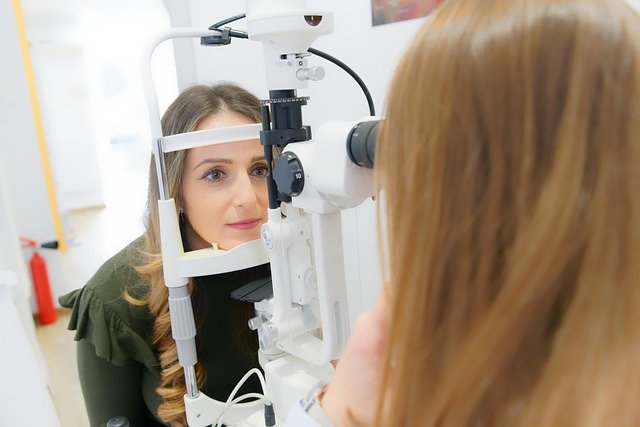Understanding Vision Tests and Eye Exams
Vision tests and eye exams evaluate sight clarity and screen for eye conditions. Regular exams can detect issues like myopia, glaucoma, or cataracts early. These assessments are essential for maintaining overall eye health and safe daily activities. Read to learn more about visions tests.

What Are Vision Tests and Eye Exams
Vision tests encompass a range of evaluations designed to assess different aspects of your eyesight and overall eye health. A comprehensive eye exam typically includes multiple components, starting with visual acuity tests that measure how clearly you can see at various distances. Eye care professionals use standardized eye charts, most commonly the Snellen chart, to determine if you need corrective lenses or if your current prescription requires adjustment.
Beyond basic vision screening, comprehensive eye exams evaluate peripheral vision, color perception, depth perception, and eye muscle function. These assessments help detect conditions such as glaucoma, macular degeneration, diabetic retinopathy, and cataracts. Eye doctors also examine the internal structures of your eyes using specialized equipment like ophthalmoscopes and may dilate your pupils to get a clearer view of the retina and optic nerve.
Complete Vision Tests and Eye Exams Guide
The examination process typically begins with a medical history review, where your eye doctor discusses any vision concerns, family history of eye diseases, medications you’re taking, and overall health conditions that might affect your eyes. This information helps guide the specific tests that will be most beneficial for your situation.
During the examination, your eye care professional will conduct several standardized tests. The visual field test checks your peripheral vision by having you identify lights or objects at the edges of your visual field while focusing on a central point. Color vision testing uses specially designed plates with colored dots to identify potential color blindness or color perception issues.
Refraction testing determines your exact prescription for glasses or contact lenses. This involves looking through a series of lenses while reading an eye chart, allowing the doctor to find the combination that provides the clearest vision. Eye pressure measurements help screen for glaucoma, while pupil dilation enables detailed examination of internal eye structures.
Understanding Different Types of Vision Tests
Various specialized vision tests address specific aspects of eye health and visual function. Automated refraction uses computerized instruments to provide an initial measurement of refractive errors, which the eye doctor then refines through manual testing. Keratometry measures the curvature of your cornea, particularly important for contact lens fitting and detecting astigmatism.
Tonometry measures intraocular pressure, a key indicator for glaucoma screening. Several methods exist for this test, including the familiar puff of air test and more precise contact methods using specialized instruments. Optical coherence tomography (OCT) creates detailed cross-sectional images of the retina, helping detect early signs of macular degeneration and monitoring diabetic eye disease.
Slit-lamp examinations allow detailed viewing of the front structures of your eye, including the cornea, iris, and lens. This microscopic examination can reveal injuries, infections, or other abnormalities that might not be visible during routine observation.
Cost Considerations for Eye Exams and Vision Testing
The cost of comprehensive eye exams varies significantly depending on your location, the type of provider, and the specific tests performed. Basic eye exams typically range from $100 to $250, while comprehensive examinations with specialized testing can cost between $200 and $400 or more.
| Service Type | Provider Type | Cost Estimation |
|---|---|---|
| Basic Eye Exam | Retail Chains (LensCrafters, Pearle Vision) | $100-$150 |
| Comprehensive Exam | Independent Optometrists | $150-$300 |
| Specialized Testing | Ophthalmology Practices | $250-$500+ |
| Contact Lens Fitting | Various Providers | $50-$200 (additional) |
Many insurance plans cover routine eye exams, particularly when performed by in-network providers. Vision insurance plans often provide annual coverage for comprehensive examinations, while medical insurance may cover eye exams when related to specific health conditions like diabetes or glaucoma. Some retail locations and online services offer more affordable basic vision screening, though these typically don’t include comprehensive health evaluations.
Prices, rates, or cost estimates mentioned in this article are based on the latest available information but may change over time. Independent research is advised before making financial decisions.
Finding Quality Eye Care in Your Area
When selecting an eye care provider, consider both optometrists and ophthalmologists depending on your specific needs. Optometrists provide comprehensive eye exams, prescribe corrective lenses, and treat certain eye conditions. Ophthalmologists are medical doctors who can perform surgery and treat complex eye diseases in addition to providing routine care.
Research local providers by checking their credentials, reading patient reviews, and verifying insurance acceptance. Many practices offer online scheduling and can provide information about their specific services and equipment. Consider factors like location convenience, appointment availability, and the range of services offered when making your decision.
Regular vision testing remains essential for maintaining optimal eye health throughout your life. Most adults should have comprehensive eye exams every one to two years, with more frequent testing recommended for those with existing conditions or risk factors. Early detection through regular vision tests can prevent or slow the progression of many eye conditions, making these examinations a valuable investment in your long-term health and quality of life.
This article is for informational purposes only and should not be considered medical advice. Please consult a qualified healthcare professional for personalized guidance and treatment.




